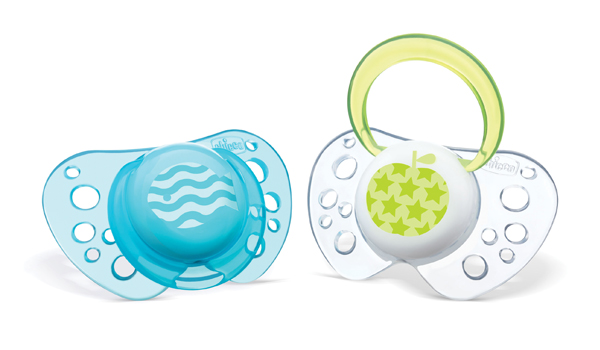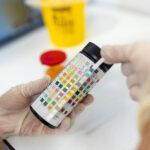What to expect when you're no longer expecting

You did it! You waited nine long months to see […]
You did it! You waited nine long months to see your baby, and she’s finally here in your arms. Not only do you have an exciting future to look forward to, you also have a great war story to share with your friends. (By the way, guys, birth stories trump fishing, camping and hunting tales for at least three months. Go ahead and let mom have the spotlight—she’s earned it!)

Now that you’ve survived pregnancy, you have a brand-new road to navigate—one that comes with its own set of questions. When will your body be back to normal? When is it safe to resume sex? How should you care for yourself after a C-section? For all you new moms wondering what to expect once you’re no longer expecting, this article is for you.
After you’ve brought your baby into the world, your uterus has a lot of work to do to get back into shape. Expect to experience afterpains, or contractions similar to strong menstrual cramps, as it shrinks to its prepregnancy state. Try massaging your uterus with the palm of your hand to relieve pain and coax it back to its normal size.
Bleeding following birth, called lochia, can last anywhere from four to six weeks. Lochia can be quite heavy and dark red. As it tapers off, it will turn from brown to brownish-yellow and eventually white. Use sanitary pads, not tampons, to catch the flow. A reappearance of bright red blood after bleeding has initially lightened is a sign of overexertion. Take it easy!
Afterpains may surprise you with their intensity, especially while breastfeeding. Breathe deeply and relax into the pain. Ibuprofen, which is usually safe for nursing mothers, will alleviate discomfort until it disappears on its own after a few days.
Hello, breast milk
As soon as you give birth, your body goes to work to provide nourishment for your baby. Colostrum, a thick, yellowish substance that acts as a laxative and works to prevent jaundice, will make its appearance first. Your breast milk will follow shortly behind it, usually two to four days after delivery. (Although sometimes it will take longer, especially if you have a Cesarean section.)
The sensation of your milk “letting down” is unmistakable. Some women describe it as an internal itch, others as the buzzing of a bee. Your breasts will be noticeably heavier, fuller and more sensitive.
Snuggle your newborn against your breasts as soon as she’s born if you can. Whether or not she chooses to nurse right away is unimportant—this moment of bonding is crucial and will encourage natural nursing when she’s ready.
Sore spot
Birth, though perfectly natural, is still quite traumatizing to the body and leaves your vagina, vulva and perineum extremely tender. Constipation and a lessened urge to urinate are common side effects of delivery. Some women attempt to postpone using the bathroom in an effort to avoid pain, but doing so only makes matters worse. Encourage your body to eliminate urine by gently running warm water over your vulva, pressing your bladder lightly, or standing under a warm shower.
Drink plenty of water and avoid stimulants like coffee and chocolate while waiting for your first bowel movement after birth. Don’t force yourself to go to the bathroom, just respond to the urges of your body.
To ease the pain when nature calls, rinse with water instead of wiping. A sitz bath, either hot or cold, can also help. You’ll be sore and your pelvic muscles will be tired and strained. Wear soft, comfortable clothing with a lot of stretch and room. Avoid your jeans until the soreness wanes, as the rougher material will only further increase your discomfort. Remember that little accidents are totally normal, especially when you laugh or cough.
Special-C treatment
Cesareans come with their own set of worries and discomforts. The brunt of the pain occurs about 48 hours after delivery and typically sticks around until sometime between days three and seven. Some discomfort, though, will last about a month.
You may experience gas and shoulder pain due to residual air in your system from the surgery, nausea from the painkillers, and phlegm as a side effect of general anesthesia. In addition, afterpains will be more acute since your uterus will be scarred.
Coughing up phlegm will put a lot of pressure on your new scar. Protect your incision by pressing a pillow to your torso and leaning over it before you cough.
To eliminate gas, try massaging your abdomen gently (beginning on the right side and continuing toward the left) and drinking hot tea with lemon. You can also lie flat on your back with your knees bent, slowly sliding your legs out straight, one at a time, to encourage your body to move gas out of the intestinal tract.
If gas is embarrassing you, don’t be afraid to ask visitors to allow you privacy for a few days before they come to see your baby. Most of them will happily oblige and, at this point, your own comfort is of utmost importance.
Body shop
Most women are unpleasantly surprised to find themselves leaving the hospital, baby in arms, looking as though they’re still pregnant, but baby weight doesn’t dissolve immediately. Your uterus needs time to return to its natural shape, your body needs time to lose the excess weight it worked so hard to gain, and your skin needs time to exercise its elasticity.
Be patient in your efforts to lose the weight—it did take nine months to gain it, after all. Maintaining a healthy diet is imperative. When you’re nursing, denying yourself food in order to shed the pounds denies your baby proper nutrition as well.
And regardless of how you’re feeding baby, not feeding yourself will leave you depleted and tired—and you’ll need every ounce of energy you can get as you adjust to motherhood. Eat well-balanced meals and snacks and, with your doctor’s blessing, gradually resume an exercise routine.
Discard those oppressive ideas that you must have a flat stomach immediately. Eat healthily, concentrate on loving your baby, and dress with attention to comfort and effortless style. A good blouse or jacket can cover a multitude of sins.
Mother lover
Believe it or not, you will have (and even enjoy) sex again. It will just take time. Generally speaking, experts recommend abstaining from intercourse for six weeks following vaginal delivery to give the body time to heal.
But often physical readiness isn’t the only obstacle—bringing your sexy back can be a major emotional challenge as well. With the chaotic state of their hormones and the new demands of motherhood, some women lose their sex drive for several months after childbirth.
When you’re ready, ease back into lovemaking. Take things slowly and respond to your natural urges. Keep in mind that breastfeeding can cause vaginal dryness, and lubricant might help make sex more comfortable for both you and your partner.
Transitioning from wife to mom and back again is extremely hard at first, and you may be surprised by how long you’ll have difficulty with it. The best intimacy right now is closeness. Cuddling, massages and shared baths will reawaken your desire for sex much more pleasantly than scheduling an appointment and forcing yourself to perform.
Fertile Myrtle
Think you needn’t worry about getting pregnant again for a while? Think again. Ovulation can occur as soon as 27 days after delivery, so plan accordingly. Most moms experience their period again between two and four months postbirth. Nursing commonly delays both ovulation and menstruation until after weaning, but it’s not a surefire means of birth control. Play it safe by using contraception until you’re ready to have another baby.







